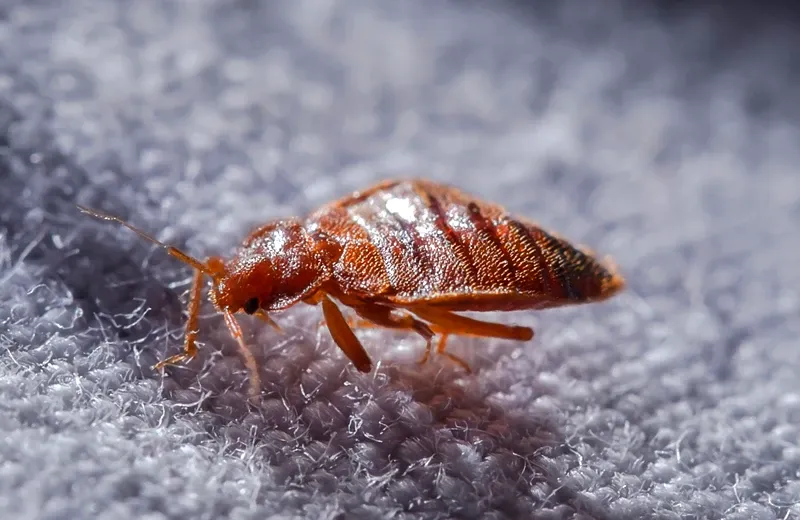Professional Kings Bug Control Services Cincinnati OH
Professional Kings Bug Control Services Cincinnati OH
Blog Article
Sorts Of Bug Control: Which Technique Is Right for Your Invasion?
When faced with a bug invasion, the selection of a proper approach for insect control is crucial in successfully managing the scenario. By exploring the different kinds of pest control techniques available, individuals can make enlightened decisions customized to their one-of-a-kind situations, guaranteeing a more reliable and sustainable result in parasite elimination.
Chemical Parasite Control
Chemical pest control involves the usage of artificial or normally obtained chemicals to take care of and get rid of pest populations efficiently. This technique is commonly utilized in agriculture, forestry, and domestic setups to battle a vast array of bugs, consisting of weeds, bugs, and rodents. The use of chemical pesticides can supply fast and targeted remedies to pest problems, making it a preferred selection for numerous people and services.
Among the crucial benefits of chemical bug control is its capacity to swiftly eliminate pests, reducing the risk of damages to plants, building, and human wellness. By making use of details chemicals that target certain bugs, this approach can properly regulate problems while lessening damage to useful organisms and the environment when applied appropriately.
Nonetheless, using chemical insect control also raises concerns concerning prospective unfavorable effects on non-target varieties, water resources, and human health. It is important to adhere to safety and security guidelines, use chemicals properly, and think about alternative parasite control techniques to minimize these risks and make certain lasting insect monitoring methods.
Biological Parasite Control
Organic insect control, also called biocontrol, utilizes living microorganisms to handle and minimize insect populaces naturally. This approach takes advantage of the power of nature to manage pests without the requirement for artificial chemicals. Biocontrol can include the intro of all-natural opponents of the pest species, such as predators, virus, or parasites, to subdue insect populaces. By using the insect's all-natural killers or microorganisms, organic insect control uses a lasting and ecologically pleasant solution to pest management.

Mechanical Insect Control
Utilizing hands-on and physical methods to handle parasite populaces, mechanical pest control provides an alternate approach that does not depend on the use of living microorganisms or synthetic chemicals. This approach entails using barriers, traps, or various other gadgets to literally prevent or eliminate pests. By blocking pest entrance factors or establishing catches to catch them, mechanical pest control can successfully decrease problems without introducing chemicals into the atmosphere.
One typical example of mechanical insect control is making use of mesh screens on doors and home windows to stop insects from going into structures. This easy yet reliable method functions as a physical barrier, maintaining insects out while enabling correct ventilation. Furthermore, tools like mousetraps, fly swatters, and ultrasonic repellents fall under the mechanical bug control group.
While mechanical pest control approaches can be labor-intensive and call for regular tracking and upkeep, they supply a sustainable and environmentally pleasant service for handling parasite invasions. By incorporating various mechanical techniques, residential or commercial property proprietors can develop a thorough parasite control strategy that minimizes reliance on chemical pesticides.
Physical Insect Control

Some usual physical parasite control approaches include using barriers such as displays or webs to avoid insect access, traps to record and get rid of pests, and hand-picking to physically remove parasites from plants or structures. In addition, methods like warmth treatments can be made use of to manage parasites like bed insects by elevating the temperature to degrees that are deadly to the insects.
Physical bug control is particularly beneficial in incorporated insect monitoring (IPM) methods, where multiple bug control methods are integrated for reliable insect administration while minimizing using chemicals. By using physical parasite control techniques, individuals can successfully resolve insect infestations with very little ecological influence.
Integrated Pest Administration
When carrying out physical parasite control methods as component of pest management methods, Integrated Bug Monitoring (IPM) becomes an extensive strategy that leverages different methods to properly regulate pest populaces. IPM focuses on long-term prevention of bugs with a combination of organic, cultural, physical, and chemical devices customized to details parasite concerns. By incorporating numerous control tactics, IPM intends to minimize the risks connected with parasites while additionally lowering dependence on chemical remedies.
One trick facet of IPM is the focus on tracking and examining pest populations to identify the most suitable control methods. This proactive strategy enables very early treatment and targeted techniques, resulting in much more effective parasite management. Additionally, IPM promotes eco pleasant methods by prioritizing non-chemical control approaches and just making use of pesticides as a last resource.
Conclusion

By utilizing the insect's natural predators or microorganisms, organic parasite control supplies a lasting and ecologically friendly service to pest monitoring. - Kings cincinnati see it here pest control
Utilizing physical and manual approaches to handle insect populations, mechanical insect control provides an alternative strategy that click this does not count on the usage of living organisms or artificial chemicals.A reliable method to handling bug populaces without depending on chemical or biological methods entails the use of physical pest control methods.When applying physical bug control techniques as part of bug management strategies, Integrated Bug Management (IPM) arises as a detailed method that leverages various strategies to efficiently control pest populations. Chemical insect control includes the usage of pesticides, organic pest control makes use of natural killers, mechanical insect control entails physical barriers, physical parasite control consists of trapping or getting rid of insects, and incorporated bug administration incorporates several approaches for a holistic strategy to pest control.
Report this page